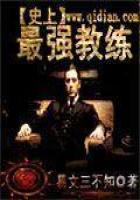Every Intendant, chosen by the Comptroller-General out of the lower-born members of the Council of State; a needy young plebeian with his fortune to make, and a stranger to the province, was, in spite of his greed, ambition, chicane, arbitrary tyranny, a better man--abler, more energetic, and often, to judge from the pages of De Tocqueville, with far more sympathy and mercy for the wretched peasantry--than was the count or marquis in the chateau above, who looked down on him as a roturier; and let him nevertheless become first his deputy, and then his master.
Understand me--I am not speaking against the hereditary principle of the Ancien Regime, but against its caste principle--two widely different elements, continually confounded nowadays.
The hereditary principle is good, because it is founded on fact and nature.If men's minds come into the world blank sheets of paper--which I much doubt--every other part and faculty of them comes in stamped with hereditary tendencies and peculiarities.There are such things as transmitted capabilities for good and for evil; and as surely as the offspring of a good horse or dog is likely to be good, so is the offspring of a good man, and still more of a good woman.If the parents have any special ability, their children will probably inherit it, at least in part; and over and above, will have it developed in them by an education worthy of their parents and themselves.If man were--what he is not--a healthy and normal species, a permanent hereditary caste might go on intermarrying, and so perpetuate itself.But the same moral reason which would make such a caste dangerous--indeed, fatal to the liberty and development of mankind, makes it happily impossible.Crimes and follies are certain, after a few generations, to weaken the powers of any human caste; and unless it supplements its own weakness by mingling again with the common stock of humanity, it must sink under that weakness, as the ancient noblesse sank by its own vice.Of course there were exceptions.The French Revolution brought those exceptions out into strong light; and like every day of judgment, divided between the good and the evil.But it lies not in exceptions to save a caste, or an institution; and a few Richelieus, Liancourts, Rochefoucaulds, Noailles, Lafayettes were but the storks among the cranes involved in the wholesale doom due not to each individual, but to a system and a class.
Profligacy, pride, idleness--these are the vices which we have to lay to the charge of the Teutonic Nobility of the Ancien Regime in France especially; and (though in a less degree perhaps) over the whole continent of Europe.But below them, and perhaps the cause of them all, lay another and deeper vice--godlessness--atheism.
I do not mean merely want of religion, doctrinal unbelief.I mean want of belief in duty, in responsibility.Want of belief that there was a living God governing the universe, who had set them their work, and would judge them according to their work.And therefore, want of belief, yea, utter unconsciousness, that they were set in their places to make the masses below them better men;to impart to them their own civilisation, to raise them to their own level.They would have shrunk from that which I just now defined as the true duty of an aristocracy, just because it would have seemed to them madness to abolish themselves.But the process of abolition went on, nevertheless, only now from without instead of from within.
So it must always be, in such a case.If a ruling class will not try to raise the masses to their own level, the masses will try to drag them down to theirs.That sense of justice which allowed privileges, when they were as strictly official privileges as the salary of a judge, or the immunity of a member of the House of Commons; when they were earned, as in the Middle Age, by severe education, earnest labour, and life and death responsibility in peace and war, will demand the abolition of those privileges, when no work is done in return for them, with a voice which must be heard, for it is the voice of truth and justice.















